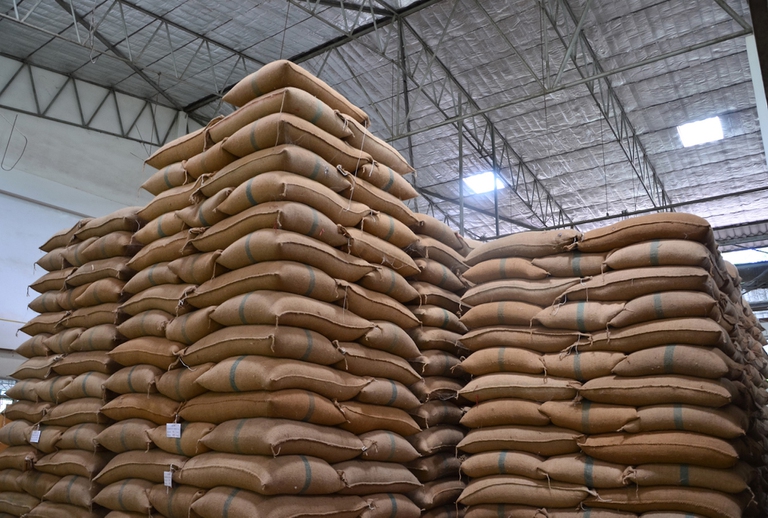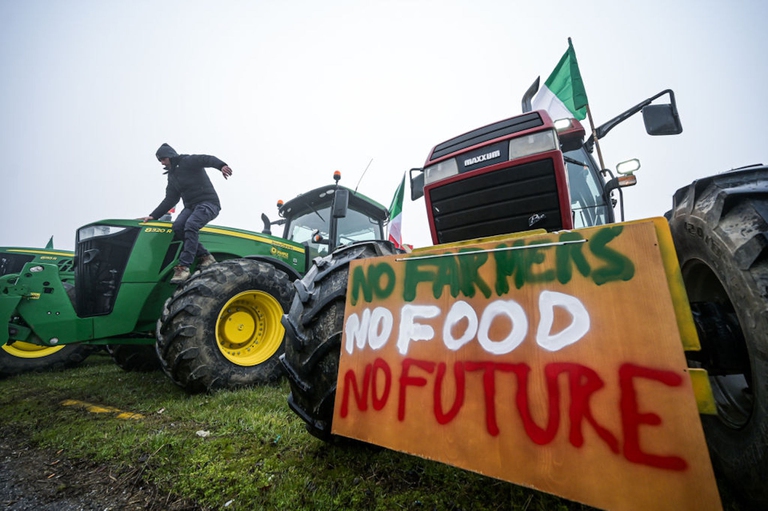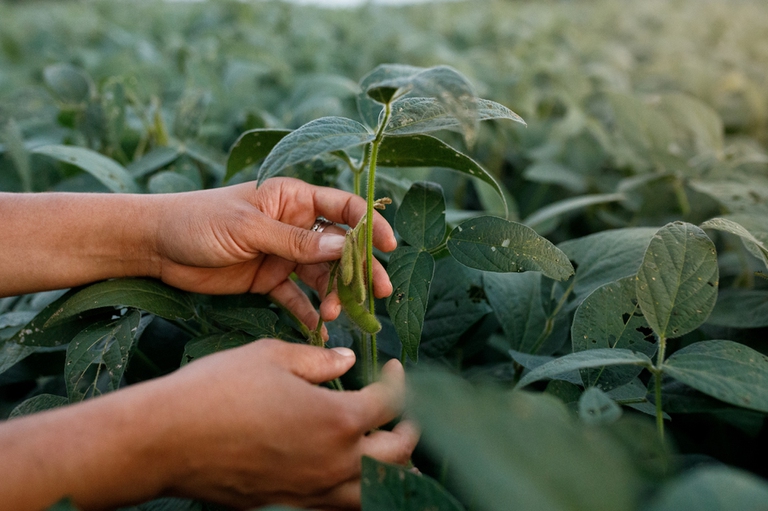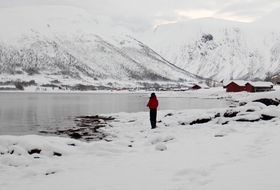
South African court dismisses a major lawsuit by 140,000 Zambian women and children against Anglo American for Kabwe lead poisoning. A setback for affected communities enduring the lasting impact of lead contamination.
Food imported into the EU aren’t subject to the same production standards as European food. The introduction of mirror clauses would ensure reciprocity while also encouraging the agroecological transition.
In food trade between the European Union and non-EU countries, “mirror clauses” that guarantee the principle of reciprocity are needed: this is what Slow Food Italy is calling for, explaining in a long and in-depth document the problems related to food imports, the difficulties faced by farmers, and the urgent need to change agriculture. The report is part of the manifesto for the EU elections that the association will send to European candidates, but also to the governors of the Italian territories it works with, in the belief that there are issues of principle that can be applied at the local level as well.
“The kind of Europe we want is a Europe that pays attention to what it puts on the table, because this has so many repercussions on soil fertility, natural resources, the environmental and climate crisis, economic and social issues, and this is not limited to imported products alone,” explains Serena Milano, director of Slow Food Italy. “That’s why Slow Food Italy has developed a manifesto, articulated in twelve points, that encapsulates our idea of food and the food and agricultural policies to be adopted.”
Returning specifically to the mirror clauses, the crux of the matter is that, while, agrifood production in the European Union must comply with certain quality standards aimed at ensuring food safety, environmental protection, social rights, and animal welfare, the same is not required of foods imported from non-Eu countries for which there are, for example, with regard to pesticide residues, tolerance limits. A contradiction that, according to Slow Food Italy, can no longer be ignored. Double standards do not, in fact, make it possible to keep the commitments that the European Union made with the Green Deal and hinder globally the process of ecological transition towards the Agenda 2030 sustainable development goals; moreover, they generate a distortion in competition to the detriment of European farmers, contributing to the discomfort manifested with the recent tractor protests across Europe. Eu food trade policy cannot backtrack from sustainability strategies; on the contrary, it must support farmers in identifying with this green pact.
“From an economic point of view, we are faced with a form of unfair competition: foods imported within the EU often do not comply with the same, more stringent, rules observed by European producers. We are talking about regulations that have important repercussions on the health of humans, animals, plants, and the environment: they concern, for example, genetically modified varieties, the use of pesticides in the fields, and the administration of antibiotics and hormones on farms. Limitations that are indisputable, but that the EU incomprehensibly applies to domestic producers only and not to food that is imported“.
The adoption of mirror clauses is a matter of transparency for consumers and a guarantee in several respects.
In order to highlight the discrepancies between foods produced in the European Union and those imported from third countries, Slow Food Italy analyzed three production chains: beef, soybeans and rice.
Closely related to GM soybeans is the use of glyphosate, a herbicide classified as a potential carcinogen by IARC, the International agency for research on cancer: currently the maximum residue limit of glyphosate for imported soybeans is 20 ppm, which is 2 hundred times higher than that allowed for many other crops. In addition, Brazil uses many plant protection products that are banned in the European Union: in particular, one-third of the active substances authorized in Brazil are banned in the Eu. And the most pesticide-intensive crop in Brazil is precisely soybean, which absorbs 52 percent of pesticides.
In detail, Slow Food Italy’s demands to the European Union regarding food imported from non-EU countries are to end double standards by adopting mirror measures, on all stages of the supply chain, and to apply the same safety measures to imported products as those produced in the EU.
For the association, it is also necessary to rethink the approach by which maximum residue limits are set for products grown with hazardous substances, and also to establish a system of evaluation, monitoring and penalties. Pending the effective introduction of valid mirror clauses on all European trade agreements, for Slow Food Italy it is necessary to refuse to ratify those that do not contain them.
Added to this Slow Food demands to prevent European countries from producing for export the agrotoxins that are banned in Europe, not to contribute to the harm to public health and the environment in those countries and to not creating the conditions for a conflict of interest within the Eu member States that will have to vote against raising tolerance thresholds for residues in imported agri-food products.
Slow Food Italy also calls for avoiding all forms of colonial appropriation of the global South by industrialized countries, such as externalizing the negative effects of agro-industrial systems working for the European market or exploiting the natural resources of third countries, and for taking into account the connections between the precautionary principle and the fundamental right to life of all people: those living in third countries, whose lives are threatened by toxic productions, and those living in Europe, who are subject to contamination by residues in imported products and who are also denied their right to information given the gaps in traceability and labeling for imported products.
Slow Food Italy stresses that in order to achieve these goals, it is critical to assist farmers in the Global South in this transition process and to put systems in place to enable their countries to meet higher standards by moving to agroecological food systems.
A different kind of agriculture is possible, they loudly declare from Slow Food Italy, as shown by the data on organic farming, in which Italy is among the world leaders with 18.7 percent of the certified utilized agricultural area. However, it is necessary to guarantee fair prices to farmers, to reward those who produce healthy food while respecting the soil, to regulate competition between local and imported products, and to support companies so that they can change their production model from intensive monocultures to agroecological practices, that is, in harmony with ecological processes, sustainable, and respectful of biodiversity. In a word, the development of sustainable food systems should be promoted. And this is not only in the European Union, but everywhere in the world.
Siamo anche su WhatsApp. Segui il canale ufficiale LifeGate per restare aggiornata, aggiornato sulle ultime notizie e sulle nostre attività.
![]()
Quest'opera è distribuita con Licenza Creative Commons Attribuzione - Non commerciale - Non opere derivate 4.0 Internazionale.
South African court dismisses a major lawsuit by 140,000 Zambian women and children against Anglo American for Kabwe lead poisoning. A setback for affected communities enduring the lasting impact of lead contamination.
Controversial African land deals by Blue Carbon face skepticism regarding their environmental impact and doubts about the company’s track record, raising concerns about potential divergence from authentic environmental initiatives.
Majuli, the world’s largest river island in Assam State of India is quickly disappearing into the Brahmaputra river due to soil erosion.
Sikkim is a hilly State in north-east India. Surrounded by villages that attracts outsiders thanks to its soothing calmness and natural beauty.
Sikkim, one of the smallest states in India has made it mandatory for new mothers to plant saplings and protect them like their children to save environment
Chilekwa Mumba is a Zambian is an environmental activist and community organizer. He is known for having organized a successful lawsuit against UK-based mining companies.
What led to the Fukushima water release, and what are the impacts of one of the most controversial decisions of the post-nuclear disaster clean-up effort?
Nzambi Matee is a Kenyan engineer who produces sustainable low-cost construction materials made of recycled plastic waste with the aim of addressing plastic pollution and affordable housing.
The Arctic-midlatitude teleconnection will become a less reliable predictor of midlatitude winter anomalies in a warmer future.













